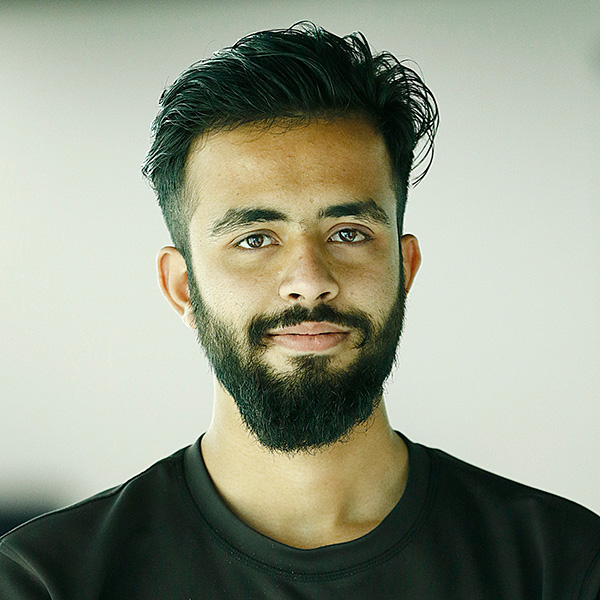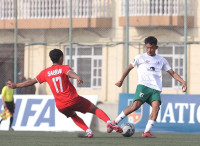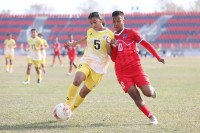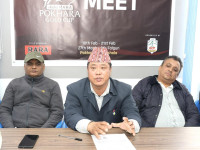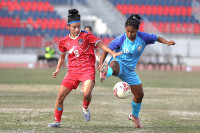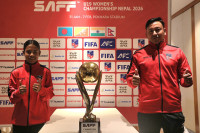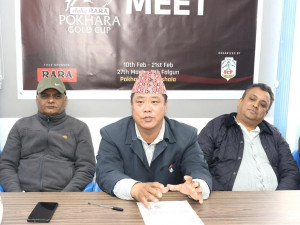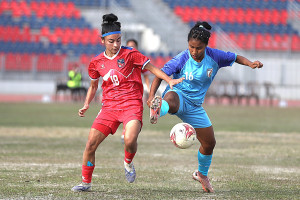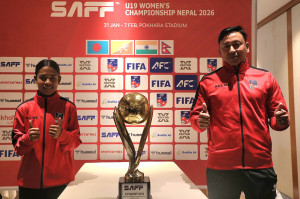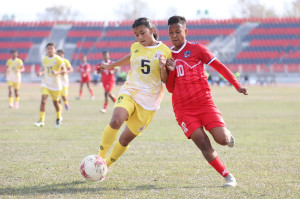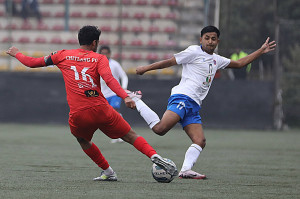Football
Nepal has fan support, Uzbekistan a solid system
Since hiring Guy Kiala as technical director, Uzbekistan has booked its first Olympics and World Cup berths, showing state backing pays off in football.
Nayak Paudel
As Nepal gear up to face Uzbekistan on Saturday in what is effectively the group decider at the AFC Women’s Asian Cup Qualifiers, the expectations on the pitch are far removed from the broader realities.
While Uzbekistan’s men’s team has surged onto the world stage—making their Olympic debut in Paris last year and qualifying for their first FIFA World Cup in 2026—the ripple effects of state investment can be seen throughout the association. Better facilities, youth academies, and professional staff have also raised standards in the women’s programme, which, though still developing, benefits from the same system and resources.
“Without investment, it is difficult to get good results in football,” said Guy Kiala, a Belgian national, a UEFA professional license holder and UEFA instructor, who now serves as the technical director of the Uzbekistan Football Association (UFA).
Kiala, who was appointed in February last year, has overseen a period of unprecedented success. Since then, Uzbekistan have secured their first Olympic appearance and qualified for a maiden World Cup.
“Football is played everywhere in the world, and qualifying for the World Cup is never easy. You need to be better than the others,” Kiala told the Post. “In the case of Uzbekistan’s qualification to the biggest stages, it is the result of continuous hard work and investment in infrastructure and human resources, long before I joined this team.”
Uzbekistan boasts a footballing culture spanning over a century. Emerging from the breakup of the Soviet Union—a sporting powerhouse in its own right—Uzbekistan fielded a women’s national team as early as the mid-1990s, despite the cultural and gender barriers common in a predominantly Muslim society.
It was in 1999 that the women’s teams of Nepal and Uzbekistan first met in international competition, during the 12th edition, in the Philippines, of the AFC Women’s Championship—now known as the AFC Women’s Asian Cup.
In that tournament, Pema Dolma Lama scored Nepal’s first international goal, finding the net against Uzbekistan on November 16, 1999. Nepal lost the match 1–6.
“Gender barrier is still a challenge for women’s football in Uzbekistan,” said Kiala. “Yet, with time, the stereotype is changing. The achievements of the men’s team have expanded the horizon for women’s football.”
Uzbekistan’s modern football is closely intertwined with the legacy of Pakhtakor FC, the only Uzbek club to have played in the top tier of the Soviet football league and the only Central Asian club to reach a Soviet Cup final.
“There are many prominent men’s football clubs in Uzbekistan now. They are what keep the footballing culture alive and kicking,” Kiala said. “The UFA is trying to build a similar culture in women’s football.”
Uzbekistan has also already hosted football greats, including Lionel Messi and Cristiano Ronaldo, among others, to motivate their fans to follow the sport. The two greats visited Tashkent in 2008 and 2009, respectively.
“Uzbek people love seeing star players. These stars helped intensify people’s love and passion for football,” Kiala said.
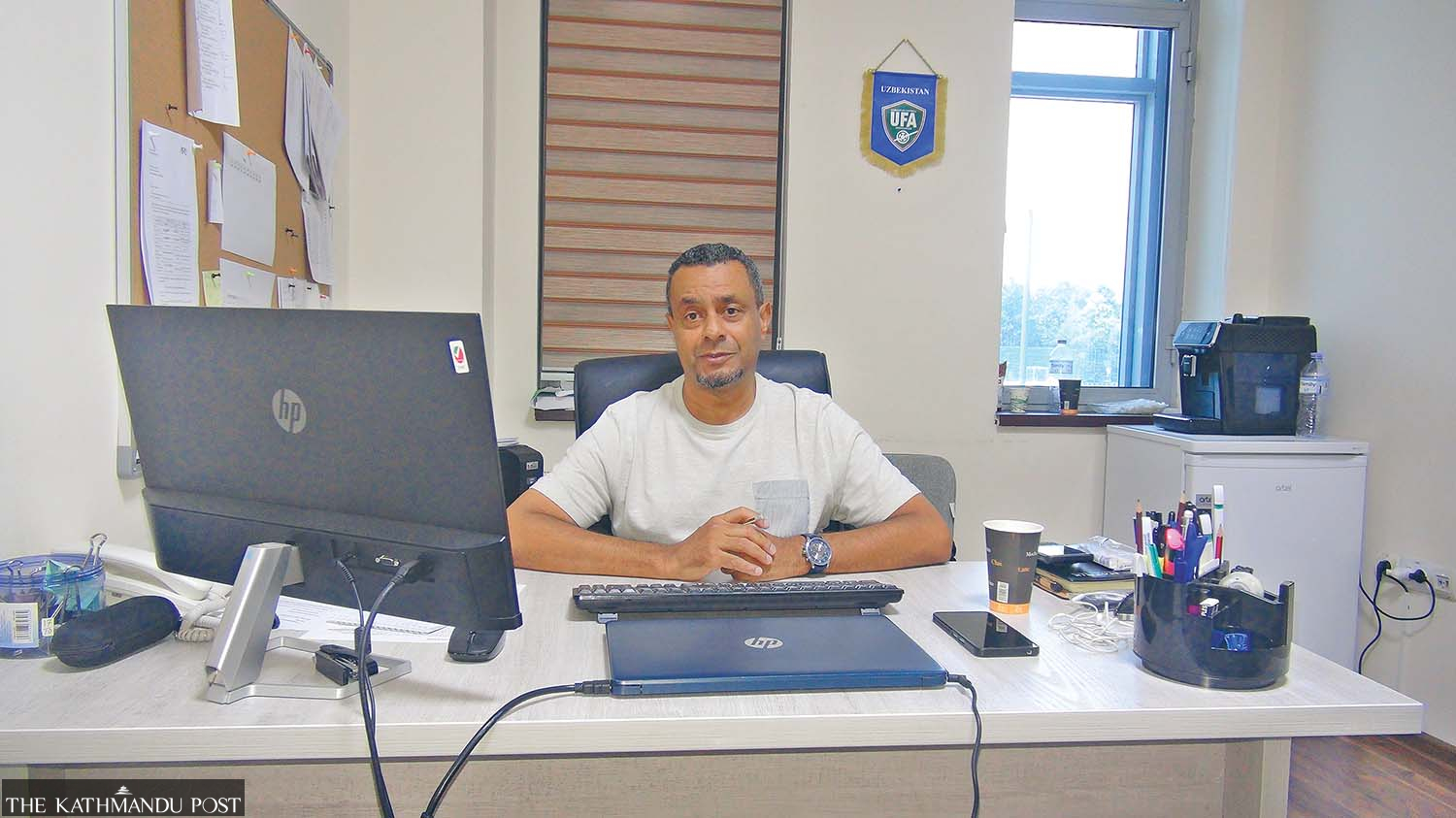
How Uzbekistan is engineering football success
Uzbekistan is divided into 14 territorial and administrative divisions or regions. And each region has a fully state-funded football academy with 154 players each.
“Each academy has 21 full-time coaches, alongside sports directors, scouts, analysts, doctors, and goalkeeping coaches,” Kiala explained. “Now, we have a new central academy that will begin operating in September.”
These academies not only cover the cost of football training but also fund players’ education and personal development.
“We cannot have all these players reaching the top level, so the UFA invests in also equipping them with life skills for other careers,” he said.
Meanwhile, the new central academy will house the 154 best young players, selected from across the regional academies.
“The central academy, which was planned long ago but completed in the past six months, has eight training pitches, one indoor football pitch, an indoor futsal pitch, a hotel, and a fully equipped medical centre,” Kiala said.
“Our technical department will move to the new academy in August, and it will come into full operation by September. We need such a structure to be a consistent participant on the world stage.”
Kiala added that the UFA is now seeing more aspiring private investors, encouraged by Uzbekistan’s qualification for the Olympics and the World Cup.
“It is not that a football team will immediately attract enough private investment,” he said. “They first need to prove their worth, and for that, the state must invest without thinking of economic profit, seeing it instead as a social project and a source of national unity.”
Likewise, Kiala, a UEFA instructor, informed that there were 64+ UEFA pro-level coaches in Uzbekistan. “We have 20 more in the pipeline. And we plan to reserve two seats from now on for women coaches as well.”
The UFA is also implementing a plan targeting an entry for its women’s team to the 2028 Los Angeles Olympics, and the World Cup by qualifying for the Asian Cup. “With achievements, we can motivate more women to join football in Uzbekistan,” he said.
And there is no shortage of motivation to take up football. The capital city of Tashkent is dotted with football pitches and playgrounds. In the evenings, parents can be seen bringing their children to train and play, encouraging young people to stay active, fit, and disciplined through sport.
“We have a good sporting culture among men. And after we qualified for the World Cup, the craze for men’s football has reached a new level,” Rustambek Barakayev, the liaison officer for Nepal women’s football team in Uzbekistan, said. “The investment in sports in Uzbekistan is visible throughout the country, and I believe women’s sports will also soon reach similar heights.”
Scenes like these are expected to help Nepal’s women’s football team (and our football administrators) understand how Uzbekistan has built the foundations to qualify for the men’s World Cup.
Passion without backing: Nepal’s challenge
“You reach the biggest stage only with that level of investment in infrastructure and human resources,” Nepal’s captain and leading goalscorer, Sabitra Bhandari—widely known as Samba—told the Post. “It’s what the Europeans do, or have done, to remain dominant in football.”
Samba emphasised the continuing global struggle of women’s football.
“Even in Europe, only the top clubs attract large crowds to the stadiums,” said Samba, who played last season in France’s top division—one of the best leagues in the world—with En Avant Guingamp. “So when I see our [Dashrath] stadium packed for our games back home, it acts as a motivation because it’s not easy to get that kind of love and support for women’s teams.”
Similarly, Rekha Poudel, who won the UAE Women’s Football League title with Abu Dhabi Country Club last season, said she sometimes feels envious of the way some Asian countries are now investing in football.
“There are not many fans for women’s club football in the UAE. Nepal is far ahead in terms of public support,” Poudel told the Post. “But Nepal still lacks investment and long-term plans.”
Kiala, who has been watching Nepal’s matches in the qualifiers at Tashkent’s Milliy (Bunyodkor) Stadium, believes that Nepali women’s football has enormous potential.
“I was amazed to see a couple of Nepali players in this tournament. I would have called them up for our team if it were possible,” Kiala said with a smile.
“We need to keep hold of these players and provide them with proper facilities. Nepal’s appointment of Patrick De Wilde shows great promise for the team as he is a recognised professional with vast experience and a clear vision.”
Likewise, Wilde, who has consistently urged Nepali fans to stay realistic about the dream of qualifying for the Asian Cup and World Cup with the current level of investment, said he has robust, long-term plans for Nepal.
“But the state and the FA should be eager to invest in them,” he said. “A long-term vision needs consistent investment and support. Nepal has huge potential.”
Samba, regarded as one of the best women footballers to have emerged from South Asia, also believes the arrival of a professional coach like Wilde is a positive step for Nepali football.
“However, the head coach cannot do it alone. He will need more resources and a structure that helps bring new women footballers to the national stage,” she said.
Nonetheless, the Nepali women’s team is in high spirits ahead of its final clash of the Asian Cup qualifiers against the hosts. “We are going to give our all, for us, and our country,” Samba said. “We know how much it will mean for our fans back home. We will fight for them.”
Samba also informed that the team was under pressure, but highly motivated as well, following the qualification of Bangladesh to the Asian Cup after defeating Myanmar. “We want to join them,” she said.
The Nepal vs Uzbekistan match, the last game of Group F comprising Laos and Sri Lanka, kicks off at 9:15 pm Nepali time on Saturday.




 9.12°C Kathmandu
9.12°C Kathmandu